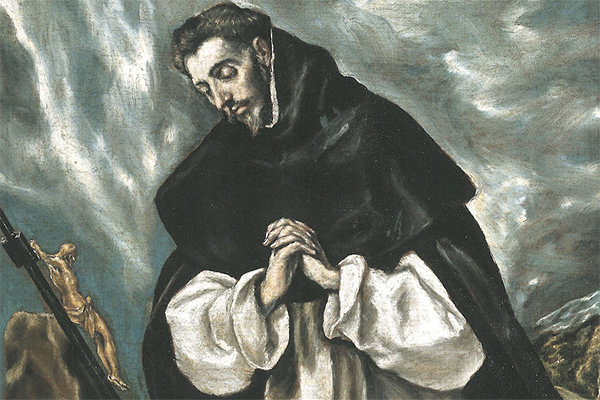
In last week’s column, impressed with an essay in the Jesuit weekly, America (March 18, 2020), by Karen Wright Marsh entitled “The Startling Prayer Life of Soren Kierkegaard,” I sketched the philosophy of Kierkegaard, who was the first existentialist philosopher.
In this column, I want to use some of Kierkegaard’s insights into the religious life to discuss just what it means to be a religious believer. I take full responsibility for using and interpreting Kierkegaard’s insights and how I explain and use them may be more “Lauder” than “Kierkegaard.”
The Danish philosopher called the best way of living, the religious. He claimed that this way of living involved a blind leap of faith and that three other characteristics of this way of living were that it was inward, subjective, and absurd. I believe reflecting on those four characteristics might help us examine our own religious commitment.
If I claim that my religious life involves a blind leap of faith, what do I mean? I mean several things. First, if by proof I mean an argument that, once it is understood, must be accepted, that a real proof, once understood, compels assent, then neither I nor anyone else can off er proof for Christian faith. If proof could be offered then everyone in the world would embrace Christianity.
Calling attention to the required leap of faith also suggests that I can neither completely understand Christ nor completely understand my leap. This is not to say that there is not enormous evidence for the truth of Christianity but it is to say that while God offers us the gift of faith, our freedom plays a crucial role in our life as believers. God invites us but we must freely accept the invitation.
The leap also suggests a profound self-gift on our part. We try to make our choice unconditional and permanent. Indicating how difficult the journey toward faith was for Soren Kierkegaard, perhaps more difficult than it is for some, Karen Wright Marsh wrote the following:
“Soren Kierkegaard too far more to heart, his was a highstakes search. Stalking the alleys of Copenhagen, occupied by interior puzzling, he was plagued by the personal problem of purpose. In the pages of his journal, 17-year-old Soren wrote, ‘What I really lack is to be clear in my mind what I am to do, not what I am to know.’ He was after an intellectual understanding that would enliven his existence in the world — one grand passion to comprehend his essential self, to know truth that was true for him, to find the idea for which he could live and die.” (p. 38)
A leap of faith in addition to indicating that while there was evidence for faith and good reasons why a person should make a leap of faith, faith went beyond human reason. I suspect that Kierkegaard was opposing a very narrow view of human reason which reduced reason to how reason operates in science. So living by religious faith was an intelligent way of living but it went beyond what science could establish. I think of Blaise Pascal’s comment: “The heart has reasons which reason does not know.”
By inward Kierkegaard meant that religious faith was serious and influenced the person’s entire life. So to believe was not a superficial act. It changed a person’s life radically. Describing Kierkegaard’s leap of faith Karen Wright Marsh writes the following:
“The young man who had long examined belief from an intellectual distance, standing outside it, now threw himself into an inward, ardent Christianity. Soren was convinced that his individual relationship with God was a radical choice. As he put it, faith is an either-or. It is either God or — well the rest does not matter. Choose what you will, but if you choose anything other than God, you lose out; both you and your choices are lost. Soren embraced faith as a passion, a leap to live life in its fullest sense.” (p. 38)
By subjective I don’t think that Kierkegaard meant private or arbitrary but rather deeply personal. A priest friend of mine described this type of relationship as eyeball to eyeball or flesh to flesh. In other words, you meet God at the deepest level of your self. To live with religious faith is to allow your life to be changed profoundly.
Finally by absurd Kierkegaard did not mean a lack of meaning but the opposite, a superabundance of meaning. A life of religious faith immerses you into the love-life of God. Religious faith and the love that accompanies it has the power to change an individual more radically than anything. Many realities can help us mature and develop as a person but no other reality can do this the way religious faith can.
Father Lauder is a philosophy professor at St. John’s University, Jamaica. He presents two 15-minute talks from his lecture series on the Catholic Novel, every Tuesday at 9 p.m. on NET-TV.
